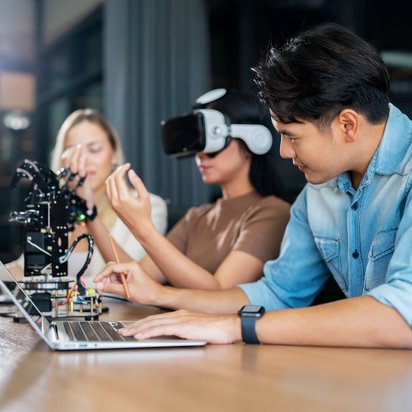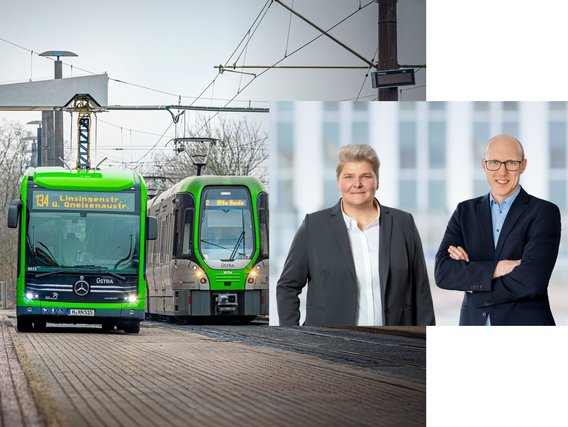TÜV NORD has taken a stake in 3spin Learning, a digital platform for immersive training. Realistic courses can be created with virtual and augmented reality, all without any programming knowledge. The potential for companies is enormous.
TÜV NORD has acquired shares in the 3spin Learning platform, with the aim of integrating immersive learning methods into the courses offered by the in-house academy in the People & Empowerment business unit. “This is allowing us to offer our participants some completely new learning experiences,” says Melanie Rudolph, Head of Corporate Development at the TÜV NORD Akademie.
“It’s all about the digitalisation of learning by doing,” explains Thomas Hoger, Managing Director of 3spin Learning. “The platform makes it possible to simulate complex scenarios that would be impossible or difficult to implement in the real world,” adds co-Managing Director Oliver Göck. For example, learners can look virtually into a machine or undertake training that would be too dangerous or expensive to carry out in reality. “This type of learning can be repeated at will and is completely risk-free,” Mr. Hoger adds. Learners can use the platform with VR goggles or on a notebook.
3spin Learning has already convinced some well-known customers such as Lufthansa, Deutsche Bahn, a number of universities and pharmaceutical companies. The possible applications are wide-ranging: From onboarding and sales calls to emergency and crisis management or fire drills, the platform offers the right solution for a wide range of training scenarios. Thanks to artificial intelligence, interactive training scenarios can be implemented with 3D avatars.
A particular benefit is evident in cost and risk management. Companies such as airlines can use virtual training to avoid expensive machine downtime while still offering realistic training opportunities. Another highlight of the platform is the ability it gives customers to create and customise their own courses with AI support. In this way, companies can offer their employees ideal training opportunities.
With its integration of 3spin Learning, TÜV NORD is now in the position to support customers with innovative, practical and sustainable training solutions. Immersive learning is thus on the way to becoming the new standard in education.
Thomas Hoger (left), Managing Director of 3spin Learning, Melanie Rudolph, Head of Corporate Development at the TÜV NORD Akademie, and Oliver Göck, Co-Managing Director of 3spin Learning






